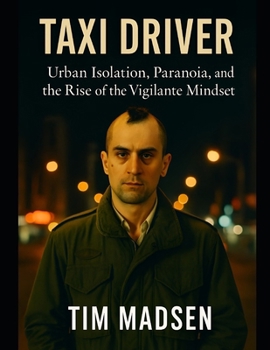Taxi Driver: Urban Isolation, Paranoia, and the Rise of the Vigilante Mindset
Taxi Driver: Urban Isolation, Paranoia, and the Rise of the Vigilante Mindset is a compelling deep-dive into one of the most iconic and unsettling films in American cinema. Blending cultural history, psychological analysis, film theory, and social critique, this book explores the profound and lasting impact of Martin Scorsese's 1976 masterpiece.
At the center of the story is Travis Bickle-a disaffected war veteran drifting through the neon-lit decay of New York City, gradually unraveling into violence under the weight of insomnia, rejection, and existential dread. But Taxi Driver is more than a character study. It is a cinematic mirror held up to the American soul at a time of national crisis-an era marked by urban collapse, disillusionment, and the dangerous allure of the lone vigilante.
Divided into ten meticulously researched chapters, this book unpacks the film's historical context, stylistic innovations, psychological depth, and cultural legacy. From its place in the New Hollywood movement to its role in shaping narratives of masculinity, alienation, and redemption, Taxi Driver continues to resonate in a world still grappling with isolation, rage, and moral ambiguity.
For students of film, cultural theorists, and anyone drawn to the dark heart of American storytelling, this book offers both insight and provocation. It is not simply about a movie-it is about the mindset that made it possible, and the society that keeps returning to its shadow.





